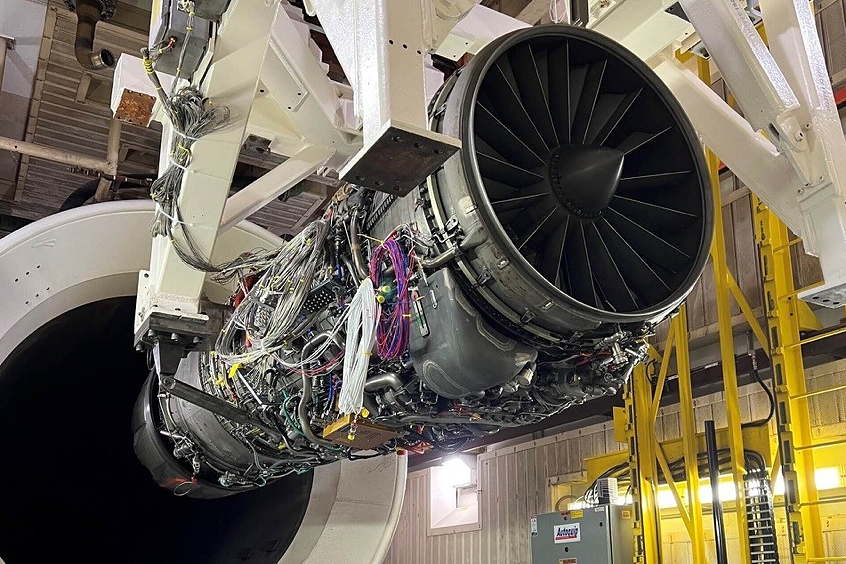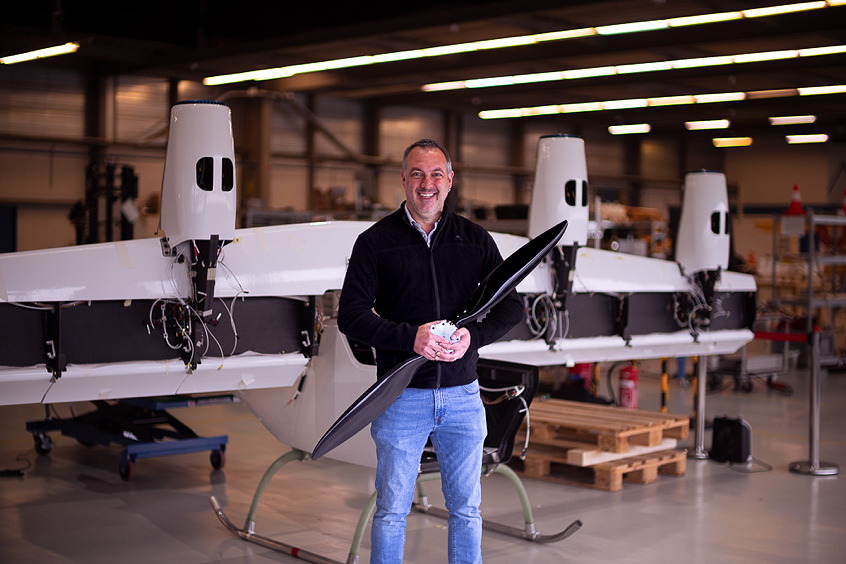A consortium of Singaporean institutions and private sector companies including HES Energy Systems, ST Aerospace, DSO National Laboratories, and the Future Systems and Technology Directorate of Singapore's Ministry of Defense, have worked jointly to achieve a record 6 hour endurance, 300km flight on the Skyblade 360 UAV built in Singapore by ST Aerospace. Besides achieving a significant technical and performance milestone for hydrogen-on-demand enabled fuel cells, it is also the first time in the world that a fuel cell moves beyond the prototype stage and enters the standard products list of a UAV manufacturer.
The Skyblade 360 fuel cell system developed by HES and DSO is extremely lightweight in comparison to lithium batteries that typically power this aircraft, and it is also extremely compact: its 1L fuel cartridge holds a whopping 1000Wh of usable energy. Unlike a typical hydrogen fuel cell, the system doesn't store its fuel as pressurized hydrogen gas, but stores it as a solid chemical material - making it easy for end-users to handle in the field.
Since its founding in 2009 in Singapore, HES has been developing the world's most advanced fuel cell systems and continues to help many of the world's unmanned aerial vehicle (UAV) manufacturers apply its technologies to improve the flight endurance of their electric powered aircraft. In the past years, HES was able to prove that its system was able to store 7% of its weight as hydrogen and a fuel utilization rate of close to 90%. Several material options exist for hydrogen on demand, however most cannot meet performance targets due to the nature of their reactions and how much energy or reactants are needed to extract hydrogen, which then delivers net usable energy through a fuel cell.
It took HES several years to achieve this performance. The company began its journey with various approaches and technologies including the use of costly Sodium Borohydride. The system designs based on Sodium Borohydride were complex, fragile, and came with many challenges for end-users. In 2013 HES pushed forward with a new material and a highly simplified system. The patented hydrogen on demand technology now targets operational costs of just $10 per flight hour - making it a real option for UAV manufacturers.
| Contact details from our directory: | |
| HES Energy Systems | Fuel Cells |
| ST Engineering Aerospace Ltd | Passenger Seating, Aircraft Interiors, Cargo Systems, Training |
| Related directory sectors: |
| Electrical Power Systems |
Weekly news by email:
See the latest Bulletin, and sign up free‑of‑charge for future editions.

Amprius and Stafl team up for battery pack innovation

RISE engine efficiency project gains momentum

Dufour picks Mejzlik propeller blades for the Aero2
